.01
COMPANY
BIOLOGICAL ENGINEERING TO MEET THE COMING CHALLENGES OF CHEMISTRY
Alderys develops innovative approaches to the micro-organic biological engineering of profitable chemical compounds from renewable plant resources. Committed to imaginative, robust scientific practice, we improve yeast cells to transform them into veritable micro production units. We offer innovative technological industrial solutions for the fabrication of products that are indispensable for our growing world and which respect the environment.
The projects developed by Alderys are aimed at speciality or commodity chemicals, cosmetics and animal nutrition sectors. Thanks to our technological quality and innovativeness, Alderys has signed a number of partnership agreements with industry leaders.
> OUR COMPANY
AN AGE-OLD NATURAL PROCESS
Humanity has been using yeast in food since the beginning of bread, beer and wine making. We exploit the natural ability of yeast to ferment sugar into alcohol and gas. Yeast strains have been selected for their genetic characteristics affecting taste and productivity for more than four millennia. Since Alderys became operational in January 2011 it has been constructing and selecting new yeast strains in an updated, accelerated version of this ancient practice. These new strains are able to produce valuable compounds for various markets, including commodity chemicals, cosmetics and animal feed, . The bio-production processes developed by our teams target global markets representing from hundreds of millions to billions of euro.
TARGETED INDUSTRIAL BIO-PRODUCTION
Using a propriety data-processing system, Alderys’s scientists conceive yeast strains adapted to the production of each target product. Thanks to cutting-edge technology, the modifications required to transform the yeasts into veritable micro bio-production units are quickly carried out. The most productive combinations of modifications are then selected to be brought to production phase. The range of applications for Alderys’s processes for industrial-scale bio-production of compounds is very wide. It can involve molecules that are naturally produced by yeast, in which case Alderys uses specific know-how which augments the productivity of the yeast and its yield. Alderys’s teams also apply their skills to the development of bio-production procedures for molecules that up to now it has only been possible to synthesize chemically.
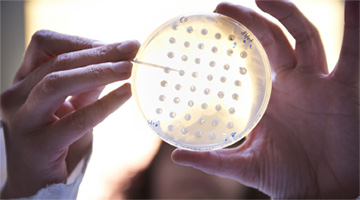
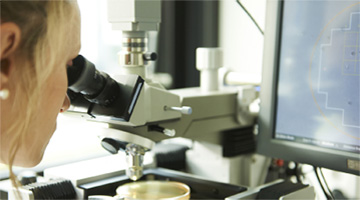
A SUSTAINABLE ALTERNATIVE TO PETROCHEMICALS
Alderys’s approach allows it to offer the petrochemical industry a competitive alternative to present procedures. In addition to their technological advantages, the alternative procedures developed by Alderys follow the logic of a sustainable and renewable economy. The use of micro-organisms capable of transforming non-food sugars and plant waste into profitable chemical compounds reconciles the dual aims of economic performance and environmental respect.
In developing its effective bio-fermentation procedures, Alderys offers manufacturers viable, lasting alternatives for major global markets. Alderys can thus give them the tools to replace fossil-based raw materials with vegetal, and synthetic chemistry procedures with biological chemistry ones.
Alderys is targeting markets of major economic importance. The petrochemical industry is the origin of a great number of everyday manufactured products: plastics, elastomers, synthetic fibres, paints, solvents are all today manufactured from oil.
Alderys has decided to limit its range of products to compounds needed in animal nutrition, health and certain sectors of the speciality chemical industry. The company’s development strategy is also based on an analysis of recent changes in the petrochemical market in which the emergence of shale gas has caused considerable changes in the supply chains of certain major chemical compounds.
The ability to respond to a demand, the value created, the potential and feasibility of any approach thought up by Alderys’s teams are all also determinant factors in the development choices of the company.
Since Alderys became operational in January 2011, thanks to its innovative approach and having demonstrated a capacity to deliver, Alderys has established partnerships with five major industrial actors, leaders in their market

> ORGANIZATION
From the beginning, Alderys was structured in such a way as to optimise the development of bio-production processes. The company is organised into specialised departments which make up independent units and which collaborate to provide the necessary technological resources for the development of each process. This matrix organisation allows for the coordination of the work to be done, while at the same time mobilising in a targeted manner the best of the skills of the Alderys scientists.
GENOME ENGINEERING DEPARTMENT
The Genome Engineering department exploits to the full the information technology tools and techniques that make up G-DESIGNER, Alderys’s propriety genome engineering platform, in order to design and construct the innovative microbial strains needed for each procedure. Alderys’s genome engineering department can call on the highest competences in molecular and genetic biology, required for the implementation of new metabolic functions in microbial cells. The use of standardised procedures, developed through the experience of the Alderys science team, optimises the fulfilment of the whole of our experimental strategy. The work of the Genome Engineering department is speeded up by the automation of key stages of the molecular construction. The elaboration of new microbe and yeast strains is extremely efficient: the Genome Engineering department produces around 450 new innovative strains each quarter.
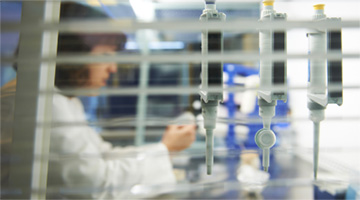
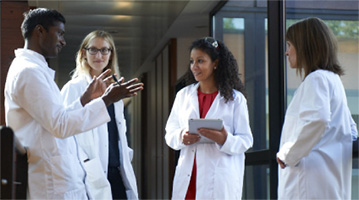
BIOLOGICAL CHEMISTRY DEPARTMENT
The Biological Chemistry department handles the biochemical and metabolic characterisation of innovative strains once the genome engineering and molecular validation stages have been carried out. To do this the department mobilises both its technologically sophisticated equipment and its analytical capacities. The equipment includes a number of mass-spectrometers, combined with ultra high performance liquid chromatography apparatus, with gas chromatography systems and with infra-red spectrometers. This equipment helps to validate the efficiency of the new metabolic pathways in the microbial strains and to screen the enzyme variations according to their function or their characteristics. The Biological Chemistry department determines the yields and productiveness of each strain along with their consumption of plant material. The department is equally competent at organic chemistry, which allows it to synthesize the reactive intermediates or the innovative reagents needed for the company’s activity.
ROBOTICS DEPARTMENT
In order to quickly create and characterise our innovative microbial strains, Alderys relies on a significant automation of our genome engineering processes. The company has combined several robotised platforms for the manipulation of yeast and microbe strains. It has developed the algorithms and robotic procedures necessary for a well-functioning automation of our technologies. The robotics department manages the robotic platforms, the associated IT procedures and the data-handling. There are five principal robotic platforms, which permit the daily treatment of hundreds of cultures. This high-throughput approach is allied to various measuring systems using visible light, fluorescence and luminescence. The department is organised in such a way as to give the utmost flexibility to the Alderys team. Through this robotisation, the automation of procedures ensures, on top of an increase in productivity, better traceability and reproducibility of the company’s operations.
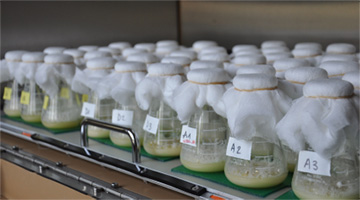
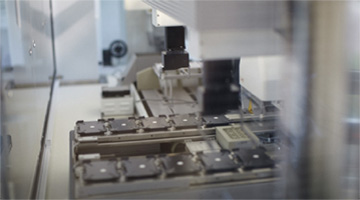
FERMENTATION DEPARTMENT
In contrast with chemical synthesis, which often rely on multi-stage processes, Alderys’s bio-production methods rely on a sole step, that of fermentation. Fermentation is the final process which, once industrialised, allows the transformation of plant-origin carbon molecules into useful chemical products. The fermentation department develops and optimises this stage. Alderys’s fermentation platform is equipped with twelve fermentors. These allow the operational parameters of the fermentation to be set and the conditions to be aligned to the future constraints of deployment on an industrial scale. The department’s work facilitates an improvement in the productivity and yield of each procedure, criteria that it is important to control to ensure the competitivity of the bio-production procedures. The fermentation department is also responsible for exploring the uses of the different non-food carbon sources for each process developed, in line with the requirement of our industrial partners.
> MANAGEMENT
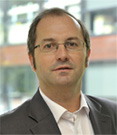
Dr. Dominique Thomas has successively been Research Director and Bronze Medal winner for CNRS, Founder and CEO of Cytomics Systems (2000-2007), and Managing Director of the Saclay Campus Technology Incubator, IncubAlliance (2007-2010). Author of over 50 publications in highly-regarded scientific journals, he combines this academic and entrepreneurial experience with numerous collaborations with industry. Dominique Thomas is a renowned specialist of yeast genetics and metabolism, he possesses a unique know-how of the industrialised manipulation of microbial species, the implantation of new metabolic pathways in yeast and the robotised manipulation of microbial species. Dominique Thomas is the President and the Scientific Director of Alderys.
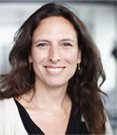
Dr. Karine Jaillardon runs Alderys’ Chemical Biology department, supervising all the work on organic chemistry, synthesis and metabolism analysis. Karine Jaillardon holds a PhD in Organic Chemistry awarded by Orsay-Paris XI University (2000) and has held various decision-making posts with both large pharmaceutical companies and start-ups, notably the post of team leader with Cytomics Systems (2005-2010) and Entomed (2004-2005). Karine has also been a research scientist with Fournier Pharma (2003-2004), Sanofi-Synthélabo (2003), and Maxia Pharmaceuticals (San Diego, 2000-2003).
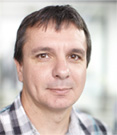
Dr. Dominique Louis runs the Genome Engineering department. Dominique Louis has a PhD from Lyon I University (1996). Author of numerous publications in refereed journals, Dominique Louis was previously Head of Project R&D for Evologic (2001-2004) followed by the CEA Genome Institute in Evry (2004-2011). Dominique Louis has also been a researcher at the CNRS Centre of Molecular Genetics (Gif sur Yvette).
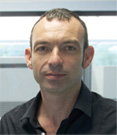
Dr. Bruno Sargueil oversees the activity of Alderys’s Robotics department. Co-founder and consultant of Cytomics Systems (2000-2010), Bruno Sargueil was formerly research fellow at the University of Vermont, USA (1993-1995) and the University of Cambridge, UK (1998-2000). Research Director with CNRS, he manages the “Molecular mechanisms of translation initiation” team at the Paris Descartes University. Specialist in protein expression mechanisms along with the evolution of biological catalysts, Bruno Sargueil brings to the company his extensive biological and development of robotic procedure expertise.


